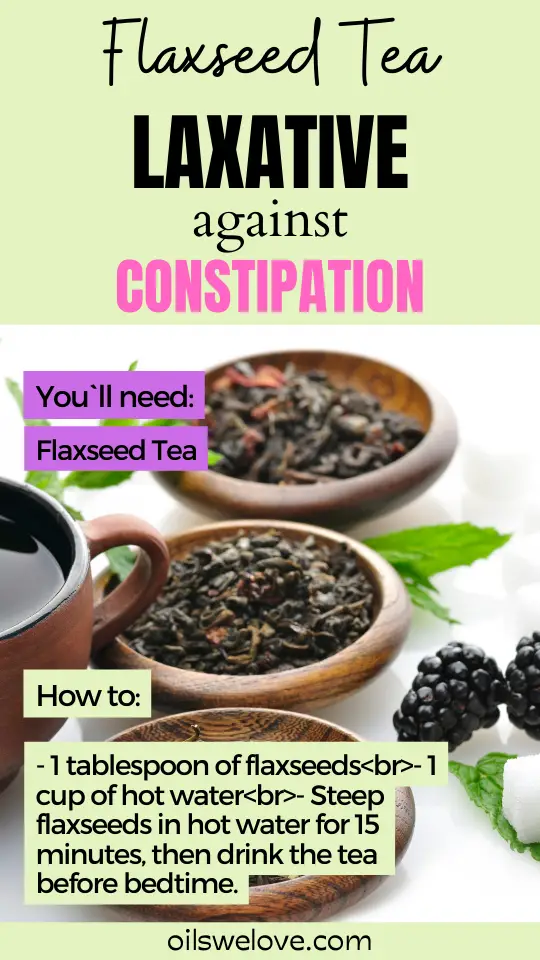In today’s modern world, many women are seeking natural remedies for various health concerns, including constipation. Natural laxatives can offer a safe and effective solution for improving digestive health and preventing discomfort. In this article, we will explore the benefits of natural laxatives specifically for women, discuss their importance, and provide an overview of different options available. Whether you’re looking for dietary changes, herbal remedies, or simple lifestyle tips, this guide will help you find the right natural laxative to incorporate into your daily routine.
Understanding the Need for Natural Laxatives
Before delving into the benefits and options of natural laxatives, it’s essential to understand the need for them. Regular bowel movements are vital for maintaining optimal digestive health. When waste accumulates in the colon, it can lead to discomfort, bloating, and even more severe health issues over time.
Women, in particular, may experience constipation more frequently due to various factors such as hormonal fluctuations, pregnancy, or the use of certain medications. Therefore, finding natural laxatives that can promote healthy bowel movements is crucial.
The Importance of Regular Bowel Movements

- 2-Week anti-inflammatory meal plan.
- 45 Foods that Cause Inflammation
- 31 Things to Avoid on Food Labels
- Grocery Lists. Challenges. Symptoms Tracker
Having regular bowel movements is vital for proper elimination of waste and toxins from the body. When waste accumulates in the colon, it can lead to the reabsorption of harmful substances, affecting overall health and well-being. Regular bowel movements help prevent constipation, reduce bloating, and promote a healthy digestive system.
Furthermore, regular bowel movements play a significant role in maintaining a healthy weight. When waste builds up in the colon, it can contribute to weight gain and make it more challenging to shed excess pounds. By ensuring regular elimination, individuals can support their weight loss efforts and improve overall body composition.
In addition to weight management, regular bowel movements also impact skin health. The skin is the body’s largest organ and plays a crucial role in eliminating toxins through sweat. However, when the colon is backed up with waste, the body may try to eliminate these toxins through alternative routes, such as the skin. This can result in various skin issues, including acne, rashes, and dull complexion. Therefore, maintaining regular bowel movements is not only essential for internal health but also for promoting clear and radiant skin.
Common Causes of Constipation in Women
Several factors can contribute to constipation in women. Hormonal changes during the menstrual cycle or menopause may affect the regularity of bowel movements. Additionally, pregnancy can lead to constipation due to increased progesterone levels. Stress, a sedentary lifestyle, and certain medications can also cause constipation. It’s essential to address these underlying causes and incorporate natural laxatives to alleviate discomfort and promote regularity.
Furthermore, hormonal fluctuations can affect the overall digestive process in women. Progesterone, a hormone that increases during pregnancy and the luteal phase of the menstrual cycle, can slow down bowel movements. This can result in constipation and discomfort. By incorporating natural laxatives into the diet, women can help regulate their digestive system and mitigate the effects of hormonal changes.
In addition to hormonal factors, stress can also contribute to constipation in women. When individuals are under stress, their bodies release stress hormones, such as cortisol, which can impact the digestive process. Stress can lead to a decrease in bowel movements and an increase in water absorption, resulting in dry and hard stools. By addressing stress levels and incorporating natural laxatives, women can promote regular bowel movements and alleviate the effects of stress on their digestive system.

Furthermore, a sedentary lifestyle can contribute to constipation in women. Lack of physical activity can slow down the digestive process and lead to stagnant waste in the colon. Incorporating regular exercise and movement into daily routines can help stimulate bowel movements and prevent constipation. However, in cases where physical activity alone is not sufficient, natural laxatives can provide additional support in promoting regularity.
Lastly, certain medications can also cause constipation in women. Medications such as opioids, antidepressants, and antacids can slow down the digestive system and lead to constipation. If individuals are taking these medications, it’s important to discuss with their healthcare provider and explore natural laxatives as a complementary approach to alleviate constipation.
The Benefits of Natural Laxatives
Natural laxatives offer a range of benefits beyond simply relieving constipation. Unlike harsh chemical laxatives, natural options are gentler on the digestive system, minimizing the risk of side effects like abdominal cramps or dependency. Additionally, these alternatives provide long-term health benefits and can help improve overall digestion. Let’s explore these advantages in more detail.

Safety and Side Effects of Natural Laxatives
One significant advantage of natural laxatives is their safety profile. Most natural laxatives are derived from plant-based sources and have been used for centuries as traditional remedies. They are generally well-tolerated and have minimal side effects when taken in appropriate dosages. Unlike chemical laxatives, natural options work in harmony with the body, promoting regular bowel movements without causing dependency.
However, it’s essential to note that even natural laxatives should be used cautiously and in moderation. Consulting a healthcare professional is recommended to ensure proper dosage and to rule out any underlying health conditions.

Long-Term Health Benefits
Unlike temporary relief provided by chemical laxatives, natural laxatives offer long-term health benefits. When used consistently, they can help regulate bowel movements and improve overall digestion. Natural laxatives often contain essential nutrients and fiber that support a healthy gut, promote a balanced microbiome, and aid in proper nutrient absorption.
Moreover, incorporating natural laxatives into your routine can prevent the development of chronic constipation, which, if left untreated, can lead to more severe digestive issues and discomfort.
A Look at Different Natural Laxatives
Now that we understand the importance and benefits of natural laxatives, let’s explore some specific options available to women.

Dietary Changes for Improved Digestion
One simple yet effective way to promote regular bowel movements is through dietary changes. Increasing fiber intake by consuming more fruits, vegetables, whole grains, and legumes can help soften stools and encourage healthy elimination. Additionally, staying hydrated by drinking an adequate amount of water throughout the day is crucial for maintaining proper digestion.
Herbal Remedies for Constipation
Nature has provided us with a wide range of herbs that can aid in relieving constipation. Herbal remedies such as senna, aloe vera, and cascara sagrada have been traditionally used for their laxative properties. These herbs stimulate bowel movements and can be taken in the form of teas, capsules, or powders. Always consult a healthcare professional before using herbal remedies to ensure safety and proper dosage.

Hydration and its Role in Digestion
Hydration plays a crucial role in maintaining regular bowel movements. Drinking enough water throughout the day helps soften stools, preventing them from becoming hard and difficult to pass. Aim to drink at least eight glasses of water daily, and consider incorporating hydrating foods such as watermelon and cucumbers into your diet.
How to Choose the Right Natural Laxative
When choosing a natural laxative, several factors should be taken into consideration.
Factors to Consider When Choosing a Natural Laxative
The effectiveness of a natural laxative can vary depending on individual needs and preferences. Some factors to consider include the severity of constipation, personal medical history, and lifestyle factors. It’s important to choose a natural laxative that suits your specific requirements and one that you can comfortably incorporate into your daily routine.

Consulting with a Healthcare Professional
It is always advisable to consult with a healthcare professional before starting any new dietary or herbal regimen. They can provide personalized advice based on your medical history and help determine the most suitable natural laxative for you.
Incorporating Natural Laxatives into Your Daily Routine
Now that you are familiar with various natural laxative options, let’s explore how you can incorporate them into your daily routine.
Tips for a Constipation-Free Lifestyle
Avoiding processed foods, increasing fiber intake, and staying hydrated are essential tips for maintaining a constipation-free lifestyle. Regular physical activity and managing stress levels are also crucial for promoting healthy digestion.
Recipes and Meal Ideas with Natural Laxatives
Integrating natural laxatives into your meals can be both delicious and beneficial. Try adding flaxseeds to your morning smoothie or enjoy a salad with leafy greens and prunes. There are countless recipes and meal ideas that incorporate natural laxatives, ensuring you can find options that suit your palate.
Conclusion
Natural laxatives can be a vital tool for women seeking to improve their digestive health without relying on harsh chemical laxatives. Understanding the importance of regular bowel movements, exploring the benefits of natural options, and choosing the right laxative for your needs are essential steps towards achieving optimal digestive well-being. By incorporating dietary changes, herbal remedies, and simple lifestyle tips, women can find relief from constipation and enjoy the long-term benefits that natural laxatives offer. Remember to consult with a healthcare professional for personalized advice and enjoy the journey towards a constipation-free lifestyle.





